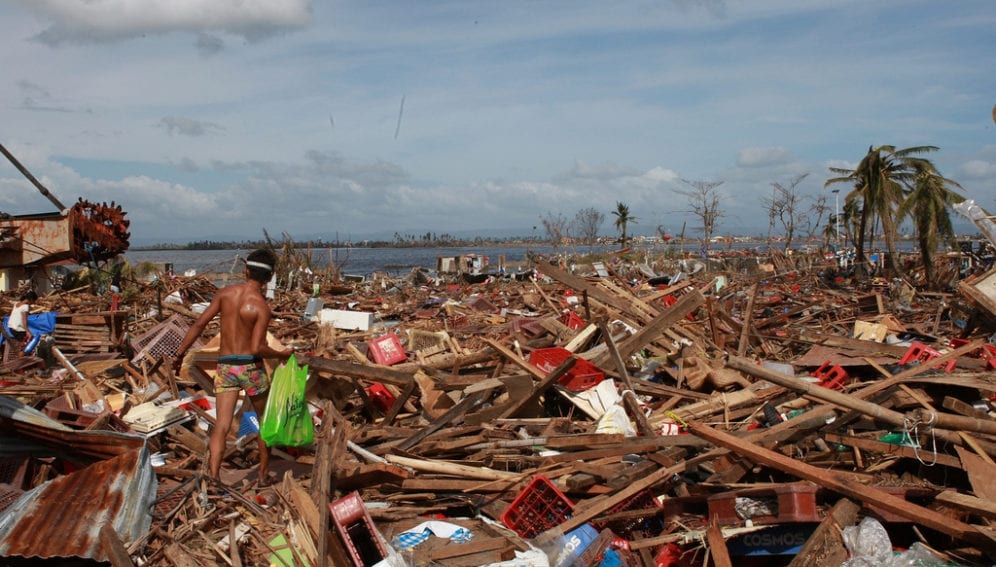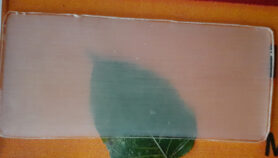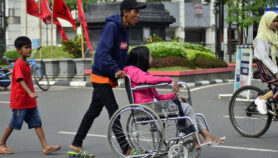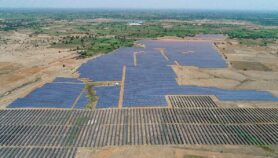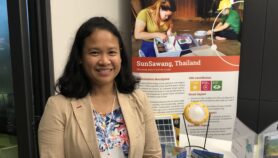By: Paul Icamina
Send to a friend
The details you provide on this page will not be used to send unsolicited email, and will not be sold to a 3rd party. See privacy policy.
[MANILA] The Philippines is set to receive donations of medical refrigerators with an innovative cooling technology that runs without electricity for up to ten days or more, ensuring the viability of vaccines especially in disaster-affected areas, SciDev.Net has learned.
The unique cooling system, called Sure Chill, will power 220 vaccine refrigerators donated by the UN Children’s Fund (UNICEF) starting February. According to UNICEF, the Sure Chill refrigerators will help save lives and rebuild the cold chain infrastructure that keeps vaccines safe and effective but which has been severely damaged by the super typhoon Haiyan last November. Each donated Sure Chill refrigerator costs about US$2,600.
The technology harnesses the physics of water to store energy. When power is supplied, the water within the Sure Chill system cools and forms ice in a reservoir adjacent to the refrigerator compartment. This leaves only water of 4 degrees Celsius cooling the chamber, claimed to be perfect for storing vaccines. If the supply is turned off or interrupted, the refrigerator is said to still continue to operate effectively until the ice stored has completely melted.
“The technology is appropriate for the Philippines,” says Carla Orozco, a UNICEF health specialist, about the impact of the new technology on a country where power supply is irregular and whose cold chain capacity was considered “inadequate” even before Haiyan as assessed in 2011 by the Department of Health (DOH) and the WHO.
“You just plug it and it works like an ordinary refrigerator — but it can still run even without electricity for ten days or more,” Orozco says.
The refrigerator needs to be powered for 44 hours or in short bursts of up to a few hours a day. Where there is no electricity, it can use solar power, Orozco says, adding that 20 of the Sure Chill refrigerators to be provided by UNICEF will be solar powered.
It also has significantly fewer components. For instance, there is no need for thermostats, fans, batteries and charge controllers that are a frequent cause of failure. Maintenance is also simple. If necessary, the entire refrigeration circuit can be replaced in a matter of minutes with easily obtainable materials, according to Peter Saunders, chair of Sure Chill Company.
The Sure Chill refrigerators will be distributed to village health centres and will be a big improvement over current cold chain facilities in rural villages where thermometers are often required to monitor and log refrigerator temperature twice a day to prevent vaccine spoilage, says Luzviminda Garcia, the national cold chain manager of the DOH Expanded Program on Immunization.
Sure Chill’s storage space of 100 litres is also a big advantage as current vaccine storage at the rural level is just 60 litres notes Garcia.
The Bill & Melinda Gates Foundation is supporting the innovative process developed by The Sure Chill Company based in Wales, United Kingdom. The aim is to further extend safe temperatures from 10 days to 35 days without power. The patented technology is also seen to have wide potential in the future for domestic and commercial refrigerators.
This article has been produced by SciDev.Net's South-East Asia & Pacific desk.
Link to Sure Chill site


